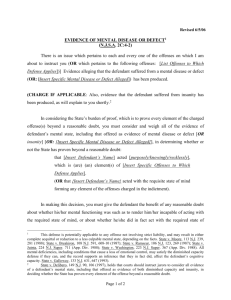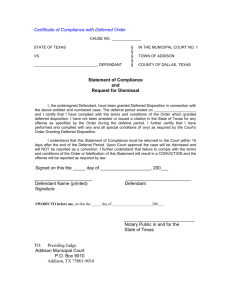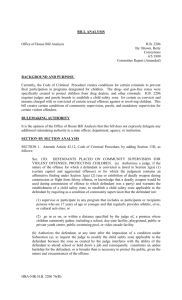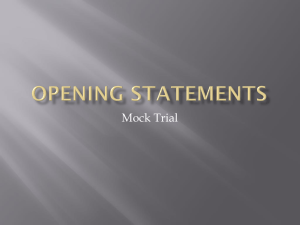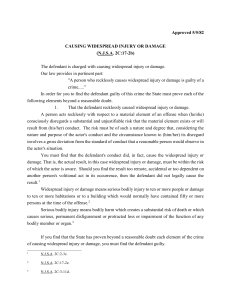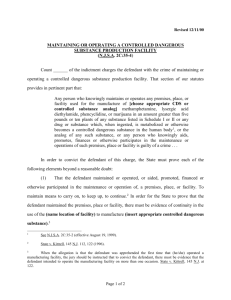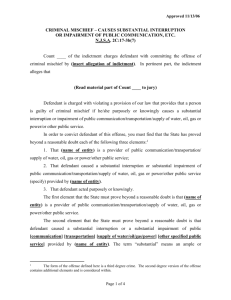CRIMINAL MISCHIEF – GRAVE TAMPERING
advertisement
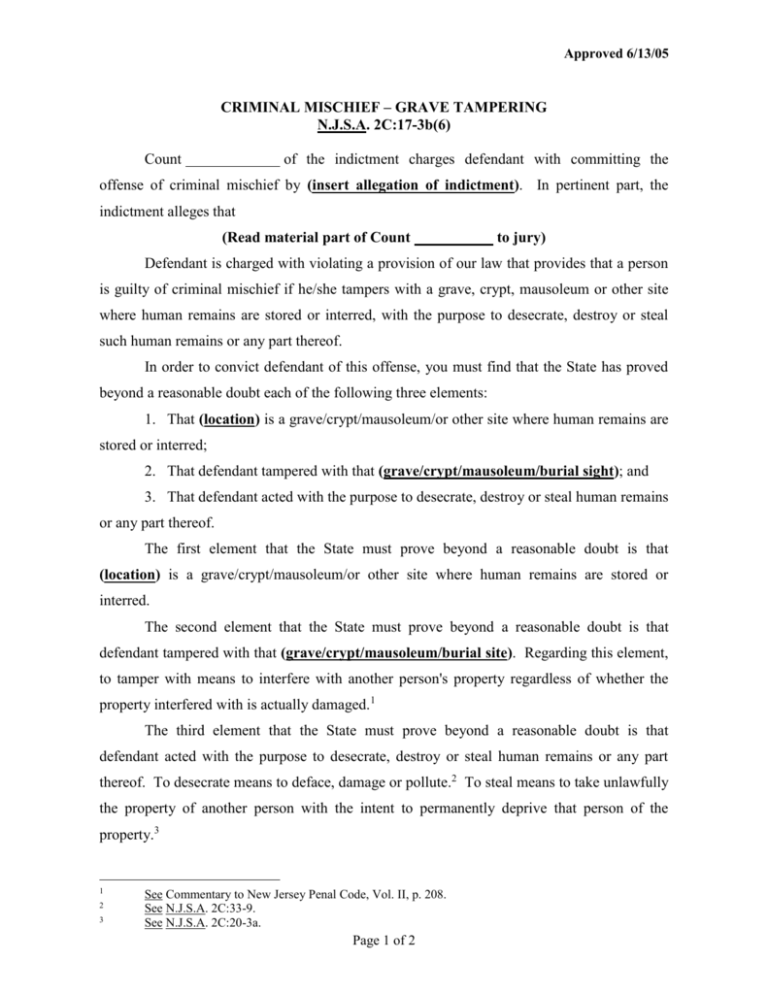
Approved 6/13/05 CRIMINAL MISCHIEF – GRAVE TAMPERING N.J.S.A. 2C:17-3b(6) Count of the indictment charges defendant with committing the offense of criminal mischief by (insert allegation of indictment). In pertinent part, the indictment alleges that (Read material part of Count to jury) Defendant is charged with violating a provision of our law that provides that a person is guilty of criminal mischief if he/she tampers with a grave, crypt, mausoleum or other site where human remains are stored or interred, with the purpose to desecrate, destroy or steal such human remains or any part thereof. In order to convict defendant of this offense, you must find that the State has proved beyond a reasonable doubt each of the following three elements: 1. That (location) is a grave/crypt/mausoleum/or other site where human remains are stored or interred; 2. That defendant tampered with that (grave/crypt/mausoleum/burial sight); and 3. That defendant acted with the purpose to desecrate, destroy or steal human remains or any part thereof. The first element that the State must prove beyond a reasonable doubt is that (location) is a grave/crypt/mausoleum/or other site where human remains are stored or interred. The second element that the State must prove beyond a reasonable doubt is that defendant tampered with that (grave/crypt/mausoleum/burial site). Regarding this element, to tamper with means to interfere with another person's property regardless of whether the property interfered with is actually damaged.1 The third element that the State must prove beyond a reasonable doubt is that defendant acted with the purpose to desecrate, destroy or steal human remains or any part thereof. To desecrate means to deface, damage or pollute.2 To steal means to take unlawfully the property of another person with the intent to permanently deprive that person of the property.3 1 2 3 See Commentary to New Jersey Penal Code, Vol. II, p. 208. See N.J.S.A. 2C:33-9. See N.J.S.A. 2C:20-3a. Page 1 of 2 CRIMINAL MISCHIEF GRAVE TAMPERING (N.J.S.A. 2C:17-3b(6) A defendant acts purposely with respect to the nature of his/her conduct or a result thereof if it is his/her conscious object to engage in conduct of that nature or to cause such a result. A defendant acts purposely with respect to attendant circumstances if he/she is aware of the existence of such circumstances or believes or hopes that they exist.4 In other words, for you to find that defendant acted purposely, you must be satisfied beyond a reasonable doubt that it was defendant's purpose or conscious object to tamper with a grave/crypt/mausoleum/burial site in order to desecrate, destroy or steal human remains or any part thereof. You should understand that purpose is a condition of the mind. It cannot be seen. It can only be determined by inferences from conduct, words or acts. Therefore, it is not necessary for the State to produce witnesses to testify that defendant stated, for example, that he/she acted purposely when he/she did a particular thing. It is within your power to find that proof of purpose has been furnished beyond a reasonable doubt by inference which may arise from the nature of the acts and the surrounding circumstances. The place where the acts occurred and all that was done or said by defendant preceding, connected with, and immediately succeeding the events in question are among the circumstances to be considered. If you find that the State has failed to prove beyond a reasonable doubt any element of the offense, you must find defendant not guilty. But if you determine that the State has proved beyond a reasonable doubt every element of criminal mischief that have been explained to you, you must find defendant guilty of that offense.5 4 See N.J.S.A. 2C:2-2b(1). Criminal mischief pursuant to See N.J.S.A. 2C:17-3b(6) is a third degree offense irrespective of any pecuniary loss suffered. The related offenses of theft of human remains contrary to See N.J.S.A. 2C:20-2e and unlawful desecration, damage or destruction of human remains contrary to N.J.S.A. 2C:22-1a(2) are second degree offenses. 5 Page 2 of 2

